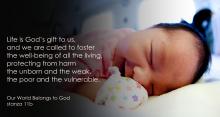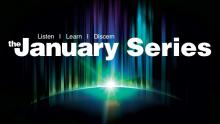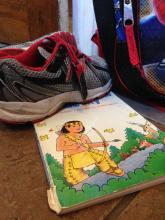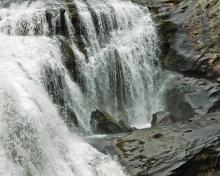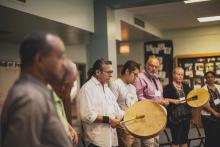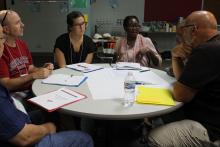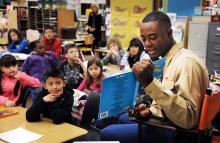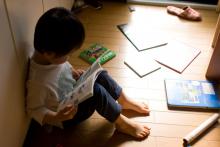My kindergartener came home excited this weekend -- he’d gotten a free book, one that he could keep! He wanted to read it right away.
As soon as I saw the book, I tried to deflect. “Maybe later, honey.” Nope! Now!
“Wouldn’t you like to find a different book? There a whole bunch of new ones from the library on the table.” Nope! This one! The Indian one.
It’s Thanksgiving season in the United States -- when many of our kids will come home with construction paper head-dresses and mythology about a peaceful dinner between "Pilgrims and Indians."

